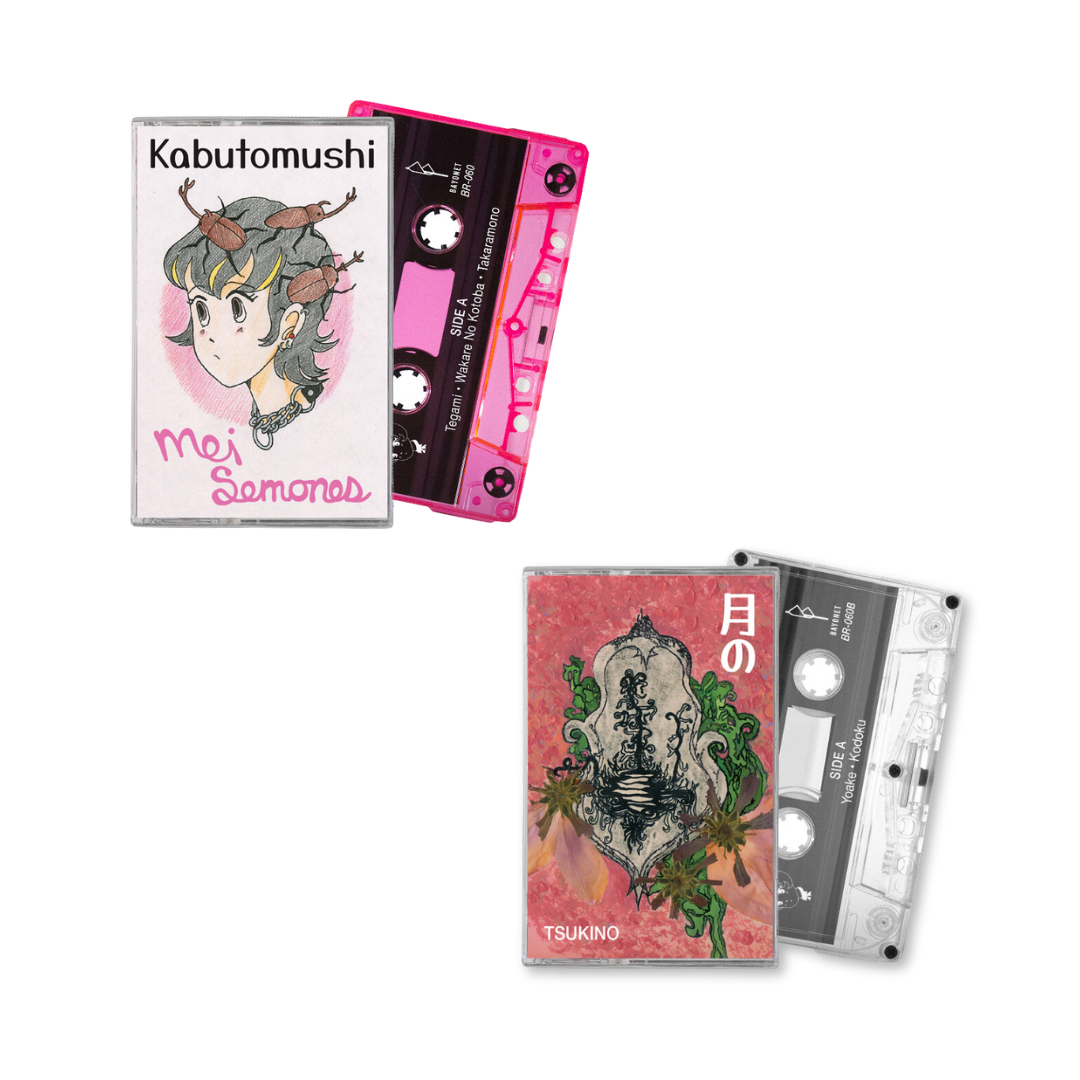Mei Semones
Mei Semones - 'Kabutomushi'
Mei Semones - 'Kabutomushi'
Couldn't load pickup availability
-
Tegami
-
Wakare No Kotoba
-
Takaramono
-
Inaka
-
Kabutomushi
Mei Semones’ sweetly evocative blend of jazz, bossa nova and math-y indie rock is not only a way for her to find solace in her favorite genres, but is an intuitive means of catharsis. “Blending everything that I like together and trying to make something new – that's what feels most natural to me,” says the 23-year-old Brooklyn-based singer-songwriter and guitarist. “It’s what feels most true to who I am as an artist.”
Plinking guitar tones and asymmetrical time signatures exemplify her forays into angular indie rock more now than ever before, especially on her debut Bayonet Records single “Wakare no Kotoba”—its wide-interval arpeggios in odd meters being some of the most technically difficult guitar work Mei has ever implemented in her songwriting. Translated to “parting words'' in English, the self-described “anti-love song” serves as a farewell to a toxic friendship, complete with orchestral swells and crashing guitars.
Originally from Ann Arbor, Michigan, Semones began playing music at a young age, starting out on piano at age four before moving to electric guitar at age eleven. After playing jazz guitar in high school, she went on to study guitar performance with a jazz focus at Berklee College of Music. College is where she met her current bandmates, including string players Noah Leong and Claudius Agrippa, whose respective viola and violin add softness and multidimensionality to Mei’s intricate guitar work. After releasing a slew of singles and an EP in 2022, coinciding with her move to New York City, Mei and her band have since gone on to collaborate with post-bossa balladeer John Roseboro and embark on their first-ever tour with the melodic rock outfit Raavi.
Semones chronicles infatuation, devotion, and vulnerability in her songs, complete with sweeping strings, virtuosic guitar-playing and heartfelt lyrics sung in both English and Japanese, that have all become part of her sonic trademark: ornately catchy, genre-fusing compositions serving as the backdrop to tender lyrics touching on the universalities of human emotion.
Share








